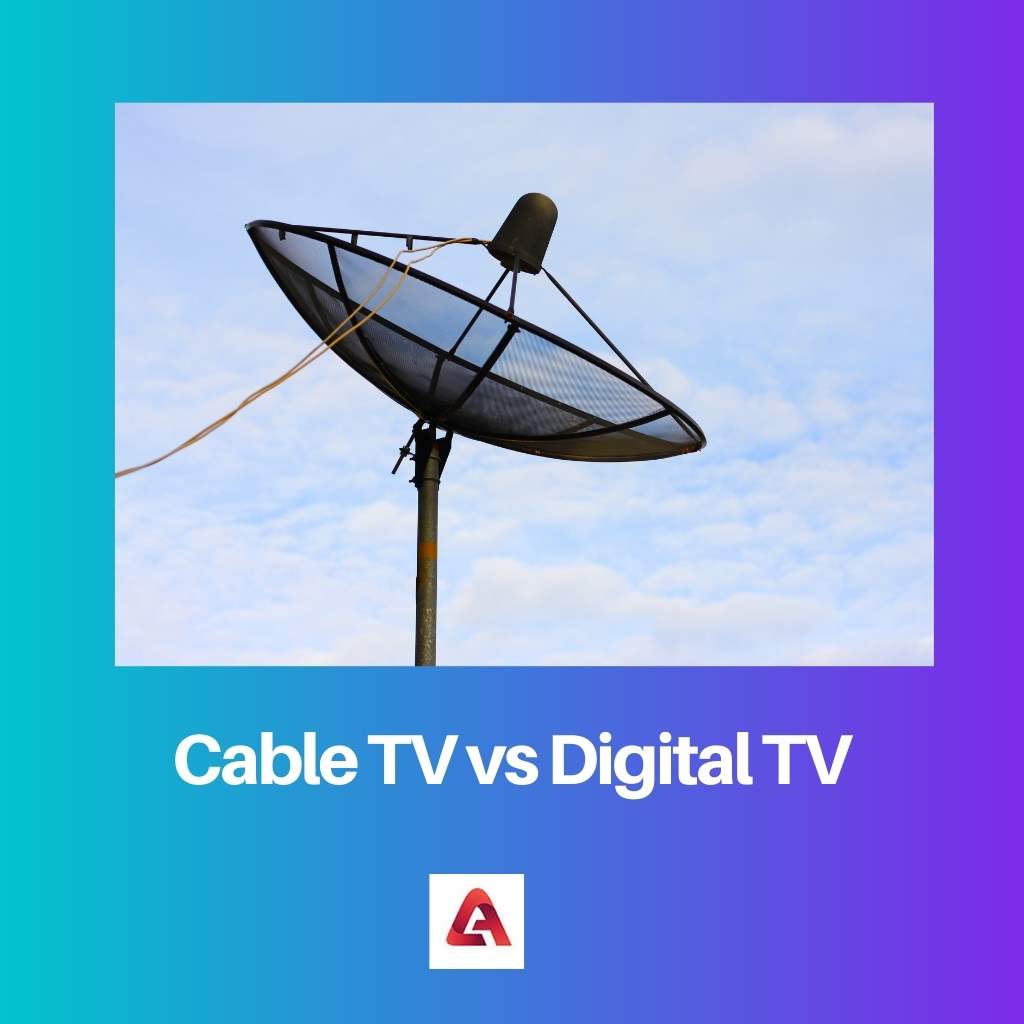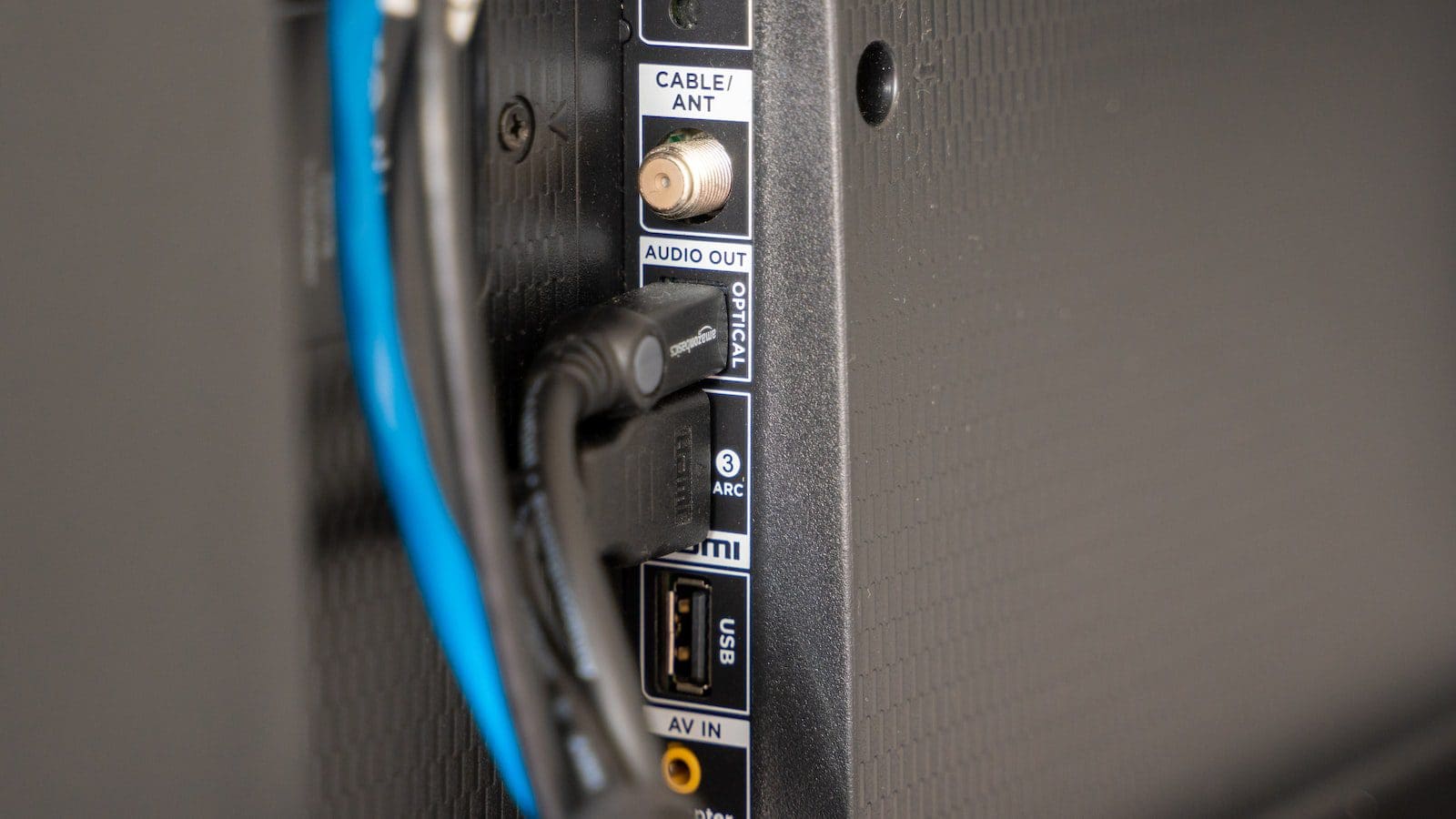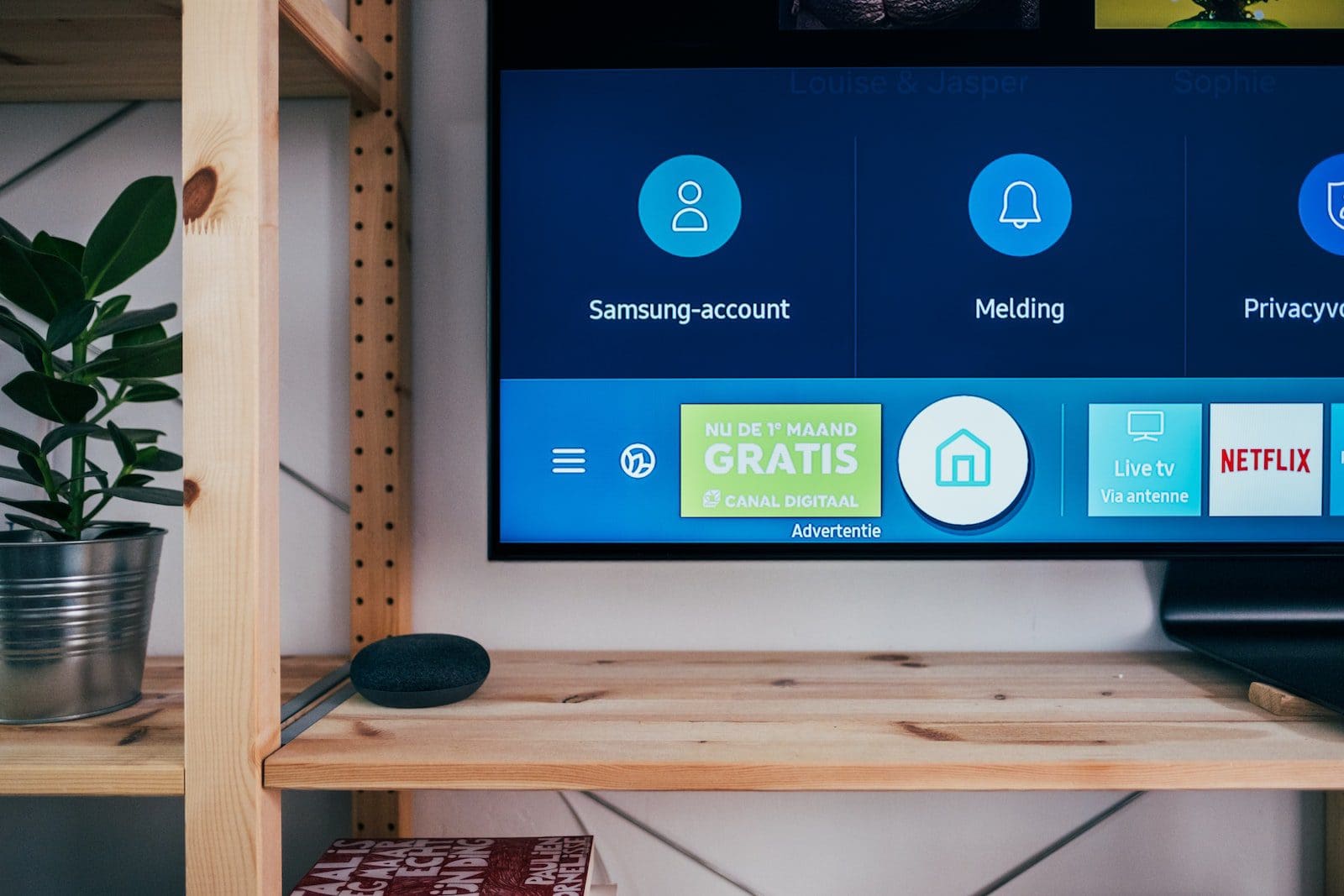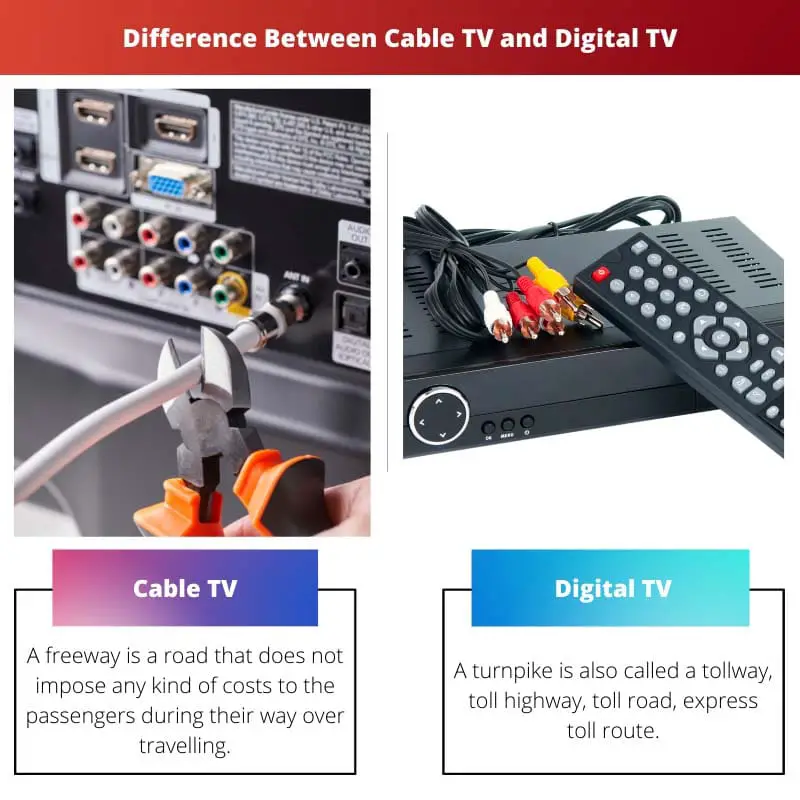Having a television channel in our home and a good tv connection will allow us to watch any channels that we want at any time. For that, we need to contact the service provider to enable that connection in our home.
There are two connections available, and many people use them. One is Cable TV, and the other one is Digital TV.
Key Takeaways
- Cable TV is transmitted through coaxial cables, while Digital TV is transmitted through digital signals.
- Cable TV offers a wider range of channels, while Digital TV offers a better picture and sound quality.
- Cable TV may experience disruptions due to weather or equipment issues, while Digital TV offers more reliable transmission.
Cable TV vs Digital TV
The difference between Cable TV and Digital TV is cable tv uses only analog signals for transmitting signals. But Digital TV uses both analog and digital signals for transmission. In cable tv, you cannot add or remove channels of your choice. You can watch only whatever is provided by the servicer. But on digital TV, you can add and remove channels of your choice.

Cable TV is a connection used by people to watch television channels. For that, they used to pay some amount of money to the cable service operator every month to get their connection and the channels provided by them.
To watch any live broadcast, you have to get a cable tv connection. There are still some people who use cable tv to watch television channels. But not everybody is using it nowadays.
Digital TV allows you to watch channels of your choice. You can contact a nearby digital service provider to enable this application in your home.
It is a very simple process; all you need is a coaxial cable connection in your home. This will make the process simple for the digital connection service provider.
You have to pay some amount monthly to the service provider to make this connection stay in your home as long as you want.
Comparison Table
| Parameters of Comparison | Cable TV | Digital TV |
|---|---|---|
| Signals | It works only with analog signals | It works with both analog and digital signals |
| Signal transmission | It used to transmit signals through coaxial cables | Signals will be directly sent to the television set |
| Broadcast quality | Long distances will affect the quality of broadcast | Long distances will affect the quality of broadcast |
| Channels | You cannot add and remove any of your favorite channels | You can easily add and remove channels of your choice |
| Quality | Due to noise and interference, there will be a loss in the picture and sound quality. | It will clean results, and they won’t get affected by noise and interference. |
What is Cable TV?
In Cable television, the signals will be transmitted through either coaxial or fiber optic cables. Here the signals will be solely distributed through satellite.
It provided high-quality signals to its subscribers. Not only that, but it also provides additional television channels to its subscribers at no cost.
For cable tv, we have to pay some amount. This amount depends upon the place and the kind of subscribers you pay.
Sometimes the prices will be high as well. Simply having an old wire antenna will not help you in getting a cable tv connection.
The cable tv company will not come and contact you for this television service. You won’t get their service and connection unless you contact them for services and pay them.
John Walson in the United States of America first started cable TV. He is called the founder of the cable television industry.
For a cable tv connection in your house, your area should contain the wires required for connecting to the cable services.
This can be done with the help of coaxial cables because many cable tv connections are given with the help of coaxial cables.
Once you get a cable tv connection, you can start watching television channels. But the drawback is you can watch channels that are only provided in their services.
You can’t watch any additional channels on your own. This feature is not available there.

What is Digital TV?
Digital TV will transmit the signals digitally rather than analog signals. It has good bandwidth, so the resolutions of the image will be good.
Here it will understand only the binary codes that are o’s and 1’s. Also, it will not use radio signals for transmission. It will use only digital signals for transmission.
Nowadays, many people are using digital tv in their homes due to their features and advantages.
It improves the spectrum efficiency so that data can also be transmitted per bandwidth. It has a better signal quality which increases the robustness.
It has good support for HD services and interaction between them. You must contact the nearby digital service operator to get a digital tv connection.
It will require a coaxial cable for the connection. First, you have to connect one end of your coaxial cable to the other end of the coaxial port of your television.
Then you have to connect the other end of the coaxial cable like the connection mentioned earlier. Then you have to turn on your television and press many buttons to select the channels of your choice.
One good advantage of using digital tv is that you can watch any channel of your choice. It will allow you to add and delete channels of your choice.
This feature is not available in cable tv connection. That is why many people prefer digital tv connections.

Main Differences Between Cable TV and Digital TV
- Cable TV will work only with analog signals. On the other hand, Digital TV will work with both analog and digital signals.
- For Cable TV connection, it uses coaxial cables to transmit signals. On the other hand, for Digital TV connection will directly transmit the signals to the television set.
- The quality of the broadcast on cable tv will be affected when you have a long distance. On the other hand, the quality of the broadcast on digital tv will not be affected for long distances.
- You cannot add or remove any of your channels in Cable TV. But in Digital TV, you can add or remove channels of your choice.
- Because of the noise and interference, cable TV’s picture and sound quality will be affected. But sound and interference will not affect digital TV’s picture and sound quality.

- https://www.sciencedirect.com/science/article/pii/S0308596109000780
- https://dl.acm.org/doi/abs/10.1145/2325616.2325632
Last Updated : 11 June, 2023

Sandeep Bhandari holds a Bachelor of Engineering in Computers from Thapar University (2006). He has 20 years of experience in the technology field. He has a keen interest in various technical fields, including database systems, computer networks, and programming. You can read more about him on his bio page.

Yes, the article really delves into the technological aspects in an informative way. I appreciate that level of detail.
The history of how cable TV started was quite interesting to learn about. I didn’t know John Walson was the founder of the cable television industry.
The table comparing Cable TV and Digital TV was very helpful. It made it easy to understand the key differences between the two.
The comparison between Cable TV and Digital TV really highlighted the advantages of digital TV. It’s clear why it’s a popular choice.
I find the simplicity of the process for enabling a digital TV connection very appealing. It’s definitely a good choice for those looking for an easy setup.
I enjoyed the humorous explanation of the process for enabling digital TV. Makes the setup sound much less daunting!
The expert explanation of how digital TV works was fascinating. Certainly makes me appreciate the technology even more.
I disagree with the statement that Cable TV offers a wider range of channels, cable TV may have a larger number, but digital TV offers a wider variety through the use of sub-channels.
The in-depth comparison between Cable TV and Digital TV was really informative. I learned a lot from this article.
I’ve been considering a switch to digital TV, and this article has helped me understand the benefits even more. Great read.
Seems like Digital TV is the way to go with its better picture and sound quality. I’ll definitely consider switching after reading this.
Definitely! There’s also the added advantage of being able to customize your channel selection with digital TV, unlike cable TV.
It’s interesting to see how the technological differences between cable TV and digital TV impact the overall quality of the viewing experience.
I see your point. However, I thought the comparison was excellent, and I also learned a lot. It’s always good to weight the pros and cons of different TV options.